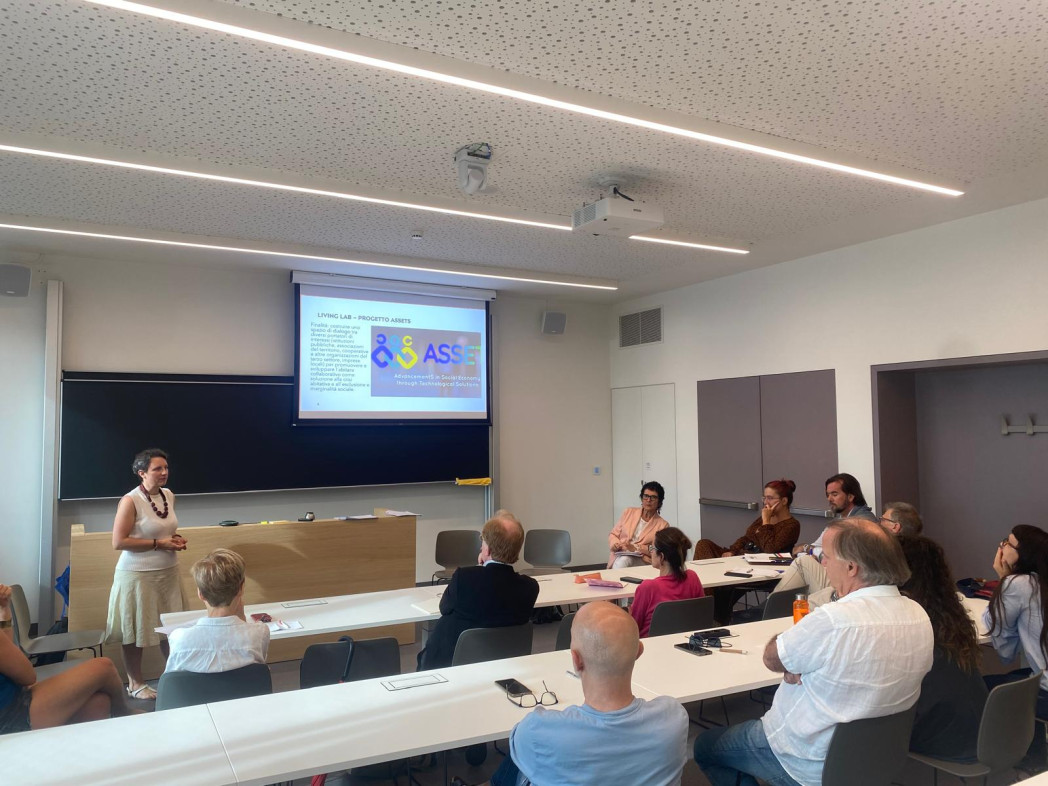
ASSETS: first meeting of the Bolzano Living Lab
Last autumn, the research project "Advancements in Social Economy through Technological Solutions" (acronym ASSETS) was officially launched, with the Competence Centre for the Management of Cooperatives playing a central role. In particular, the Centre’s Director Richard Lang and researchers Alessandra Piccoli and Michela Giovannini are actively involved.
ASSETS is a collaborative project aimed at promoting innovation in the social economy across Europe. Although social economy organizations (SEOs), including cooperatives, account for more than 10% of EU enterprises and support 13.6 million jobs, they face challenges related to legal frameworks, funding, and scalability.
There is an urgent need to expand the scope of social impact assessment of SEOs beyond service beneficiaries to also include the impact on the workforce. In this context, technological advances offer opportunities to support the development of SEOs, with platform cooperatives emerging as influential actors that foster civic participation and aim to improve working conditions for their members through collaborative governance models.
In this setting, the Bolzano Living Lab project was born, a space for dialogue among local stakeholders aimed at implementing concrete initiatives in the Oltreisarco neighborhood (including cultural events, festivals, and workshops) and promoting the collaborative housing model as a response to the housing emergency and social marginalization.
The first in-person meeting of the Living Lab served as a dialogue platform to identify concrete proposals. Among the topics discussed were the intention to organize an event in the autumn, the creation of a participatory neighborhood map to involve local residents, the activation of collaborative networks among associations, schools, cooperatives, and social services, and a shared desire to engage neighborhood residents even beyond the scope of the project itself.
The Living Lab is expected to last two and a half years, during which efforts will focus on strengthening the local network and demonstrating, with data, that solidarity generates both economic and social value.
During the meeting, Samuele Verrucchi, representative of the Sole Cooperative for Social Innovation (a project partner), presented the collaborative housing model, outlining the experience that began in 2021 as a Provincial initiative in Bolzano, leading to the development of a solidarity-based housing model. This model is built on the sharing of spaces, skills, and mutual support among residents, aiming to transform people from passive recipients of help into active resources for the community.
The project includes:
-
6 apartments in the Oltreisarco neighborhood, allocated to women with children, elderly people, students, and a community manager.
-
A multidisciplinary team including a psychologist, a community nurse, a coordinator, and a community manager.
-
The creation of an individual social file for each resident, with monitoring of wellbeing and progress.
-
A housing agreement that commits residents to active participation in community life.
The meeting laid a strong foundation for the future development of the ASSETS research project, whose results will be shared at upcoming events organized by the Competence Center.